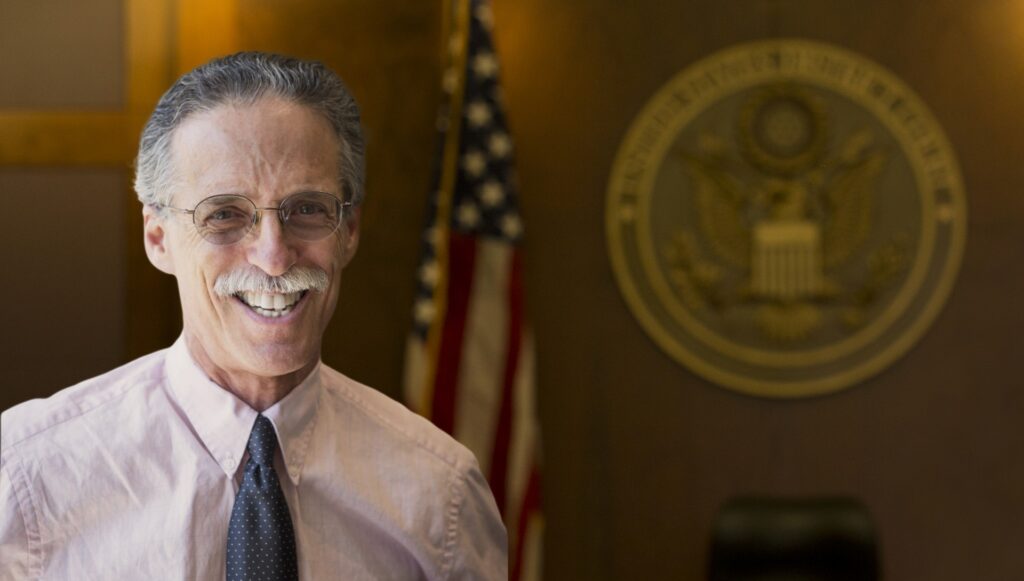Temple University Beasley School of Law recently announced the creation of a new faculty chair and two new professorships. The Edward D. Ohlbaum Professorship marks the legacy of Temple Law’s legendary trial advocacy professor “Eddie” Ohlbaum and acknowledges his enduring impact on the law school. Professor Jules Epstein, a highly regarded criminal defense lawyer and evidence scholar who succeeded Ohlbaum as director of Temple Law School’s advocacy programs, was named as the inaugural holder of the Ohlbaum Professorship. We sat down with Professor Epstein to discuss the Ohlbaum Professorship and its significance for his work.
Temple Law School: Congratulations on this honor, Professor Epstein! How does the Professorship impact your scholarship and your work as Director of Advocacy Programs?
Professor Jules Epstein: Eddie Ohlbaum was a, if not the, national leader in advocacy program design and advocacy scholarship. Having this position does two things – it inspires me to continue his work and gives added credibility to all we are now doing locally, regionally and nationally in advocacy education and research.
TLS: Since joining Temple Law, you have made your mark on an already legendary program, establishing Temple as a national leader in advocacy education. What does the future of advocacy education look like at Temple Law?
PJE: The future looks bright. Our adjunct faculty are superb; we have built or strengthened our relationships with the American College of Trial Lawyers and the Trial Lawyers Hall of Fame, which bring top-caliber lawyers in as lecturers, role models, and sources of employment; and with an ongoing commitment to improving our technology and teaching the use of tech in the courtroom, we are and shall remain on the cutting edge of advocacy education.
TLS: Advocacy – whether inside a courtroom or not – is at the heart of legal practice. How does Temple’s advocacy program help prepare students for success after graduation?
PJE: Through our basic and advanced courses in trial and appellate advocacy, and in particular with the integrated program linking advocacy skills, knowledge of the law of evidence and mastery of civil procedure rules, our students are as ready as any in the nation to enter the courtroom, take a deposition, or otherwise participate in the litigation process. And the proof of that is in our graduates’ success stories – they report that they are ready to litigate, and their employers repeatedly confirm that Temple grads are at the top of their new hires in terms of litigation skills and being ‘courtroom ready.’
TLS: While Temple Law’s National Trial Team has enjoyed historic success, you and your colleagues on the advocacy faculty have worked to create opportunities for all students, not just trial team members, through strategic partnerships and access to the LL.M. program. What can students get here at Temple that they can’t get anywhere else?
PJE: I don’t want to be dismissive of other advocacy programs – many are top-notch. But Temple offers a multi-faceted advocacy education. Students meet top litigators and judges in the classroom, as coaches, in lectures and lunch-and-learns, in clinics and practicum offerings, and in the employment opportunities we link them to as students and as they graduate. Our use of technology continues to grow, making students ready for 21st century litigation; and our course offerings continue to expand, with more and more opportunities to link advocacy skills and the mastering of legal doctrine. With the LL.M. Program, which almost no other law school has, JD students are able to participate in advanced lectures and trial skills training. And perhaps most importantly, there is an ‘open door’ policy for the top caliber advocacy faculty – students are able to and do visit with and learn from Temple’s best any and every day.

